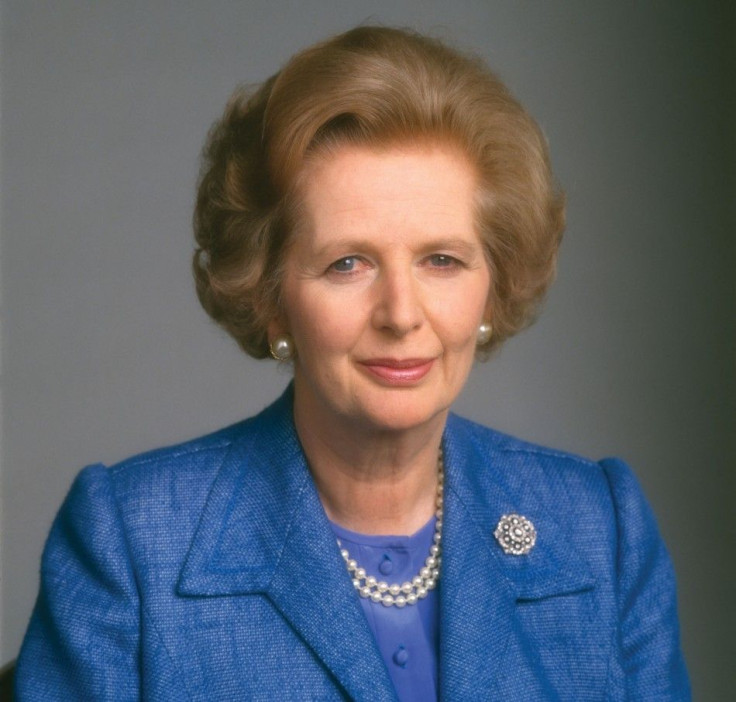Margaret Thatcher: The One and Only
ANALYSIS

When Hillary Clinton recently announced that she will retire from politics after the 2012 U.S. Presidential elections, one of the most remarkable political careers of the modern era likely came to an end.
Assuming she adheres to her vow, she will likely never become the first female American president. Moreover, there are few, if any, prominent American women lawmakers who are expected to make a bid for the White House in 2016. Former Alaska governor Sarah Palin's political future looks cloudy, while the governor of South Carolina, Nikki Haley, has presidential aspirations, but she remains an untested long-shot.
It is indeed odd that the U.S., the world's most advanced nation, has never had a female head-of-state. Many countries around the world – including Germany, Ukraine, India, Pakistan, Israel and Thailand – have had women as leaders, some of whom have become iconic figures.
Moreover, the nation most similar culturally and linguistically to the U.S., Great Britain, has had one – and only one – woman Prime Minister.
Margaret Thatcher dominated British politics throughout the 1980s.
Thatcher became a British powerhouse and a global player during the era of Ronald Reagan. However, given her strident conservative views; opposition to trade unions during a period of endemic strikes and high unemployment; tough stance against the Soviet Union; controversial statements on immigration during a period of racial unrest in Britain; and severe cuts in social spending; the “Iron Lady” made as many enemies as supporters.
Thatcher remains a highly polarizing figure in Britain and elsewhere. Even some members of her Conservative Party were uncomfortable with her views, personality and policies. Still, she remains the only woman British Prime Minister.
Thatcher’s profile was recently raised again by the release of a new movie starring Meryl Streep in the role of the formidable woman.
International Business Times spoke to an expert on British politics to discuss the phenomenon and legacy of Margaret Thatcher.
Dr. Victoria Honeyman is a lecturer in British Politics at Leeds University, UK.
IB TIMES: Margaret Thatcher was the first female British Prime Minister, but so far the only one. Do you think her controversial term in office and strident personality has hurt the chances of other British women from rising to the top of UK politics? Or did she inspire a new generation of British females to pursue senior politics?
HONEYMAN: I don't think it has particularly damaged the prospects of [British] women in politics, nor has she particularly helped it. Thatcher was often accused of acting “like a man” in politics and therefore betraying the feminist movement. Therefore, other female politicians are no more linked to Thatcher than a male politician would be to any other random male politician.
Thatcher's politics, not her gender, that were far more likely to inspire or upset people.
IB TIMES: What made Thatcher stand out to the point where she led the rough and tumble world of Tory politics?
HONEYMAN: Like all politicians, the attributes which led her to the top were ambition, expertise and cold-blooded determination. Thatcher was able to split opinion and inspire loyalty amongst her supporters, as well as inspiring hatred amongst her enemies. In addition, Thatcher was lucky in that many of her political opponents missed their own chances of leadership.
IB TIMES: Is Thatcher an ”icon” to the current Tory party, or do they seek to distance themselves from her now?
HONEYMAN: A bit of both, depending on who you talk to. Thatcher is a toxic brand to many in Britain and therefore the party have distanced themselves from her. However, to another sizeable portion of the electorate, Thatcher is a political hero, as reflected by the desire of former Labour Prime Ministers Tony Blair and Gordon Brown's to meet with her early in their leadership.
Therefore, the current Conservative Party cannot distance themselves too much from Thatcher. It is a tricky tightrope to walk on.
IB TIMES: What percent of the Members of Parliament in the UK are women? Are we seeing this figure climb?
HONEYMAN: I think it is currently just over 20 percent. There have been a number of initiatives since the early 1990s amongst the three main parties [Labour, Conservative, Liberal-Democrat] to increase the number of women in Parliament, but these have tended to have only limited, and rather short-term, success.
IB TIMES: Does the Labour Party feel “embarrassed” that they’ve never had a female candidate for PM, given that they’re supposed to be the “progressive” party”?
HONEYMAN: There is no evidence to suggest this. They have had a female Deputy Leader in the form of Harriet Harman. Prior to 1997, the key thing for the Labour Party was winning a general election, then maintaining their position in government, not the gender of their leader.
IB TIMES: What British women, if any, might be considered future PM material?
HONEYMAN: It is impossible to say. When asked – while serving as Education Minister under former Prime Minister Edward Heath -- Thatcher herself said she didn't expect to see a female Prime Minister in her own lifetime.
Politics is a game of twists and turns and therefore it is impossible to mark someone for greatness with any certainty.
© Copyright IBTimes 2024. All rights reserved.











